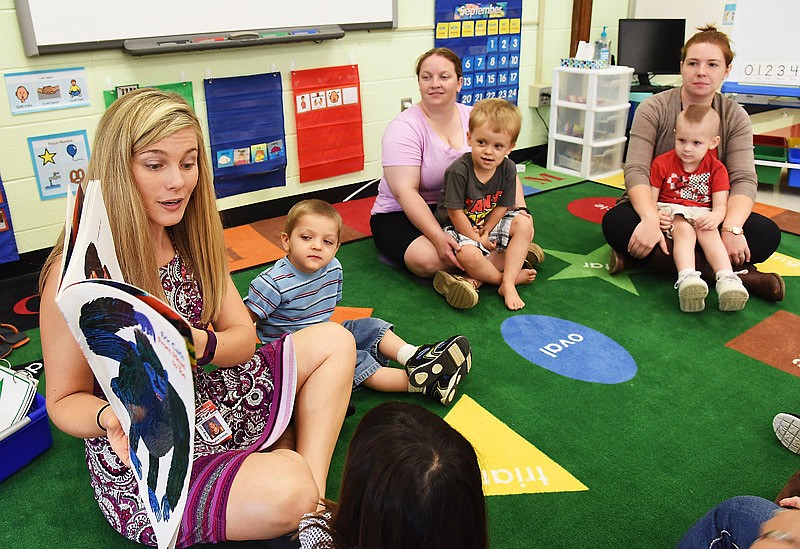JEFFERSON CITY, Mo. (AP) - Missouri school districts are looking forward to the possibility of more funding for early childhood education next year.
Lawmakers this year, for the first time in recent memory, hit their self-imposed target of roughly $3.4 billion for school funding.
A 2014 law says that when legislators fully fund schools, money becomes available the next year to help districts fund pre-K programs. Districts can start counting students in the formula for the program in the 2018-2019 school year, with an estimated cost of $68 million if all districts participate.
But school leaders are hesitant to get too excited about the possibility of more money for pre-K, fearing future budget cuts in a state that has recently struggled to make ends meet. Lawmakers were able to "fully fund" schools this year because last year they lowered the benchmark - not because they found significantly more education dollars.
Brent Ghan, deputy executive director of the Missouri School Boards' Association, said it would put a strain on schools if more students were eligible for that money and the state didn't provide adequate funding.
"There may be some districts without early childhood programs that might potentially receive less funding than they otherwise would've received if this pre-K funding is a demand on (state dollars)," he said.
Republican Gov. Eric Greitens and his predecessor, Democratic Gov. Jay Nixon, slashed a combined $350 million from this year's budget to keep it balanced after revenues came in lower than expected. If the same thing happens next year, school funding could be on the chopping block and pre-K expansion thrown into doubt.
Nixa Public Schools Superintendent Stephen Kleinsmith said that planned cuts to transportation funding and the lower benchmark for "fully funding" schools could allow some districts to simply shift the costs around.
"It's good news for early childhood, but when you look at the big picture ... you lose it in transportation, but you gain it in early childhood," he said. "It's the same as you had before."
And the amount of money that would be allocated to early childhood is small. The law allows districts to apply for funding for just 4 percent of its free and reduced-price lunch population. In a district with 1,000 students that qualify, the state would foot the cost for up to 40 students.
Kleinsmith said it's unlikely that his district would be able to take on more early childhood students with that money. The funds would instead go toward bills for the existing 220 students in the program.
Paula Knight, an associate superintendent at St. Louis Public Schools who oversees the district's early childhood programs, has worked to expand St. Louis' program to cover about 2,100 students using a variety of sources including private donors and federal funds.
She said the state expansion could allow her to reach more students or help fund the current program, but the key to success will be whether lawmakers can invest in it long term.
"It's all about sustainability," she said.
Missouri ranked 33rd in state pre-K spending in 2015, according to the National Institute of Early Childhood Education. In that year, the state paid for just 5 percent of 3-year-olds and 11 percent of 4-year-olds in early childhood programs, and most of those children had special needs.

